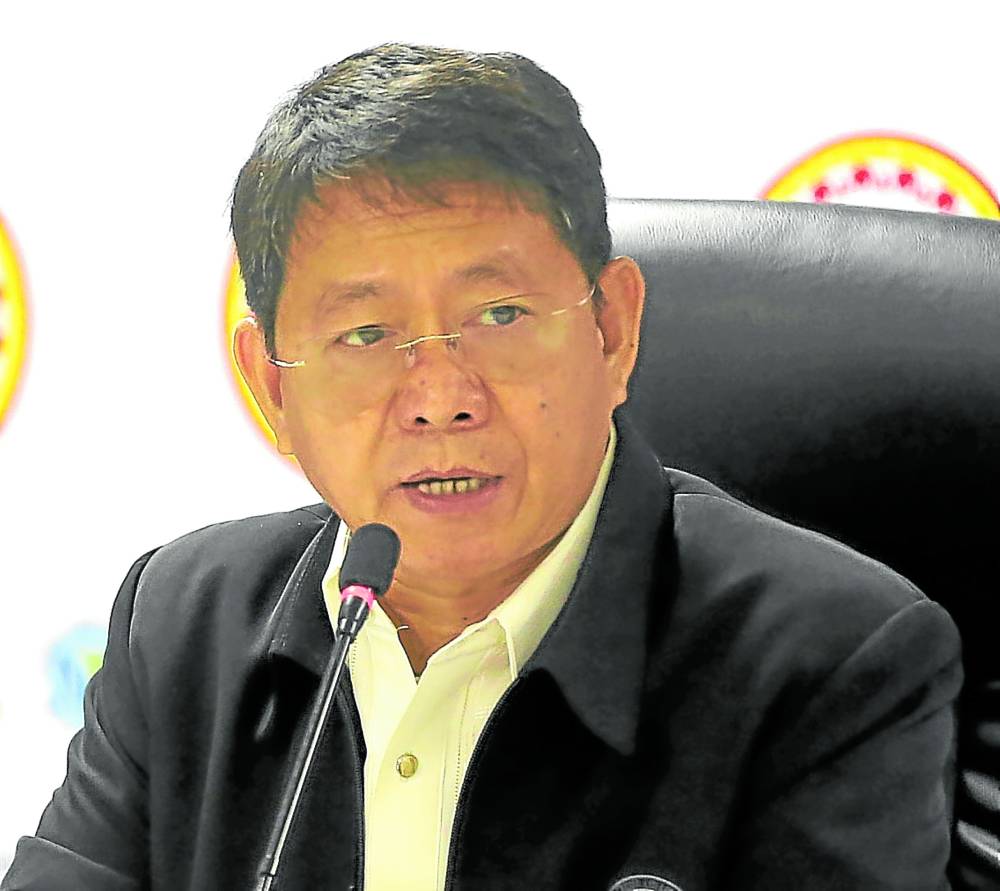
National Security Adviser Eduardo Año. INQUIRER FILE PHOTO / NINO JESUS ORBETA
MANILA, Philippines – National Security Adviser (NSA) Eduardo Año said Wednesday the New People’s Army’s (NPA) force continues to dwindle, with its weakened guerrilla fronts now down to five.
In a statement, Año said this is a further decline from the seven weakened guerrilla fronts earlier stated by the National Task Force to End Local Communist Armed Conflict (NTF-Elcac) in its first-semester report.
READ: AFP targets to eliminate 11 remaining NPA guerrilla units by end of 2024
“We are confident na kaya nating matapos ‘yung armed component. Sa AFP (Armed Forces of the Philippines), ang target nila ay December 2024. August pa lang naman tayo (We are confident that we will be able to finish the armed component. The AFP’s target is to end them by December 2024. It’s just August),” the former AFP chief said when asked how confident the government is in attaining total victory against the communist insurgency.
READ: Military declares Zamboanga Peninsula ‘NPA-free’
The NPA, created on March 29, 1969 by Communist Party of the Philippines chair Jose Maria “Joma” Sison, is the armed component of the CPP.
The violent Maoist-inspired insurgents, which numbered about 25,000 in the 1980s, advocate for a bloody overthrow of the government.
Since the NTF-Elcac’s creation in 2018, the 89 active NPA guerilla fronts have been rendered inconsequential and weakened, with only five remaining.
Año, however, clarified that the military and concerned local government units are still readying an official announcement regarding the two weakened NPA guerrilla fronts.
The NSA also pointed out that the elimination of the CPP’s armed component is not the end as a lot still needs to be done to prevent the communist insurgents from recruiting new members, especially in “white areas” or those in rural locations, and curb their resurgence.

